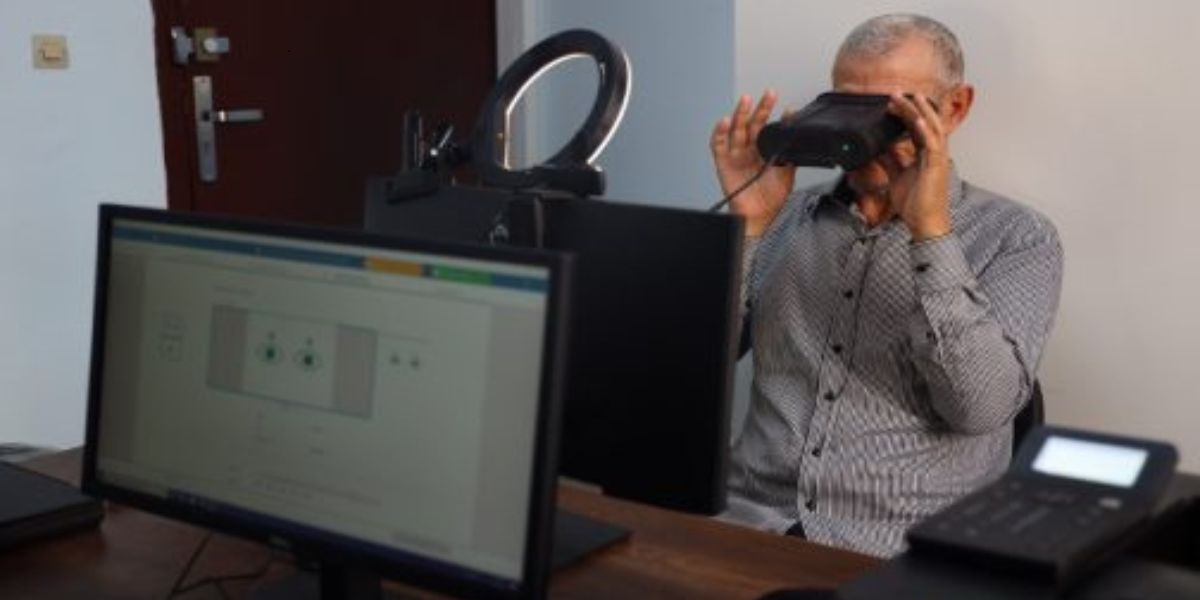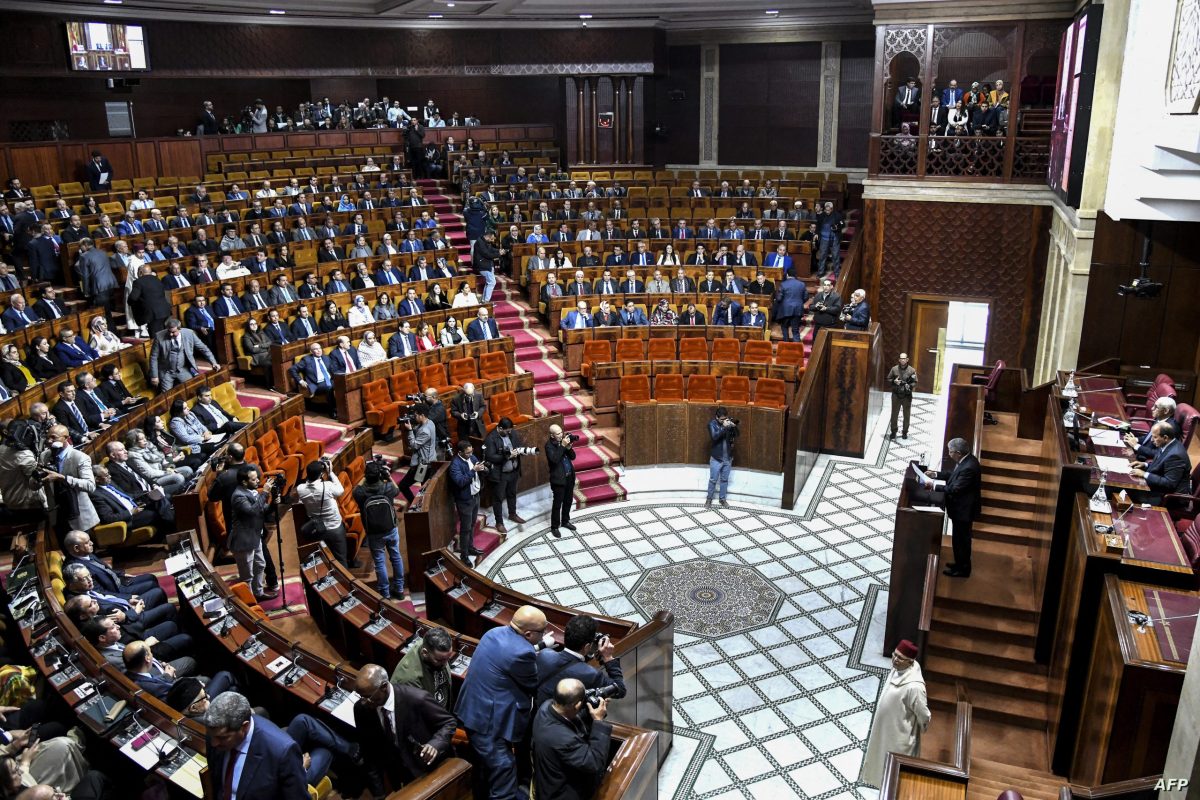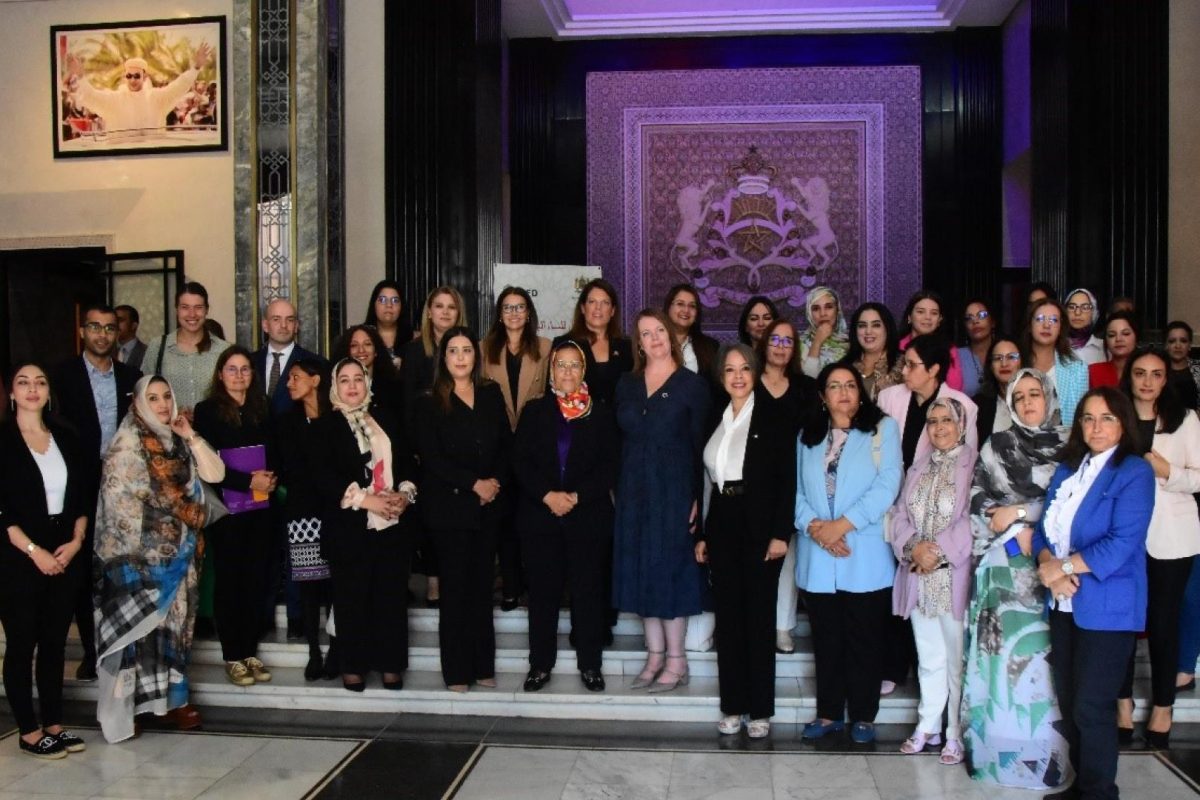[vc_row][vc_column][vc_column_text]Download the Report
1-Executive Summary:
- Social trust in Morocco is particularistic and not generalized, and is mainly related to the nuclear and the extended family. The nuclear family is the most trusted institution at 99%, followed by the extended family at 85%.
- The more the social circle expands to include strangers, the less trust there is.
- Moroccans trust each other moderately; 60% of the respondents believe that Moroccans trust each other.
- The findings of this study confirm the same conclusions reached in last year’s Trust in Institutions Index, that is, the low trust in the elected institutions, with the exception of trust in the government, which has significantly increased this year, as 50% of Moroccans said they trust the current government compared to 23% last year.
- The membership in political parties is weak, as 98% of the respondents said they are not engaged in any political party.
- The study confirms that about two-thirds of the respondents (64%) do not consider voting in the upcoming elections (2021), compared to only 32% who are considering voting.
- The police and the army are the two most trusted institutions; 86% of Moroccans trust the police and 89% of them trust the Royal Armed Forces.
- There is no significant difference in trust and satisfaction between the private and the public education sectors. Whereas the private health sector is more trusted compared to the public one.
- Only 35% of the respondents expressed their satisfaction with the government’s efforts to combat corruption. Half of the respondents (52%) believe that the government is making effort to fight corruption but it can actually do more in this regard.
2-Introduction
The Moroccan Institute for Policy Analysis (MIPA) has conducted the second edition of the Trust in Institutions Index 2021 to be published as an annual report in order to measure and analyze Moroccans’ level of confidence in various political, economic and social institutions. This Trust in Institutions Index project aims to provide a platform for public debate on the issue of trust in institutions in Morocco and to make recommendations and proposals to decision-makers in order to strengthen institutional trust. The report mainly targets policy-makers, civil society organizations, academics and journalists, by involving them in the various stages of the project since its inception. This report was carried out in partnership with Heinrich-Böll-Stiftung – Rabat and the National Endowment for Democracy.
The report is divided into four main sections. The first one deals with the issue of social trust by analyzing the indicators of interpersonal trust, especially the willingness to trust others, including the nuclear and the extended family, neighbors, and strangers. The second section deals with political trust, mainly in key state institutions, and also its relationship to the perceptions of corruption and formal and informal political participation. The third section is devoted to the issue of trust in the education sector, whereas the fourth one is devoted to the health sector.
The report relies on a combination of quantitative and qualitative research techniques. The quantitative analysis was conducted through a survey on a representative sample of 1,400 people between July 15th and August 31st representing the Moroccan population aged 18 and over. The representative nature of the sample was ensured by the quota method (sex, age, and geographical area) according to the structure of the Moroccan population outlined by the High Commission for Planning (RGHP 2014). The questions constituted about 84 variables via CATI (Computer Assisted Telephone Interviews).
Concerning the sample of the quantitative analysis, about half of the participants were women. The under-29 age group represents about 32%, while the over-50 age group is about 29%. As for the geographic distribution, the sample was representative according to regions, and the percentage of the respondents in the Casablanca region accounted for 20% of the total number of respondents, followed by the region of Rabat-Sale-Kenitra with 14% and the regions of Guelmim, Laayoune, Dakhla 1% because of its population density in relation to the Moroccan population.
The persons with income less than 3000 dirhams constitute about 32% of the respondents, while those whose income ranges between 3000 and 8000 dirhams per month make up the largest share: about 45% of the respondents. As per their education level, about 37% of the respondents have a middle or high school level, 27% have a university level, 19% have a primary level, and 13% are uneducated.
In terms of qualitative analysis, we used the ‘grounded theory’ approach, which is a methodology based on building analytical frameworks through a dense and structured set of field data. In this regard, we used in-depth interview technique through semi-directed questions with 50 participants divided as follows: one third of education professionals, the second third of health professionals, and the last third of ordinary citizens from the cities of Casablanca, Tetouan, and Fez. The sample is diverse and takes into account gender balance and socio-economic diversity. Interviews lasted an average of 30 to 45 minutes for each participant.
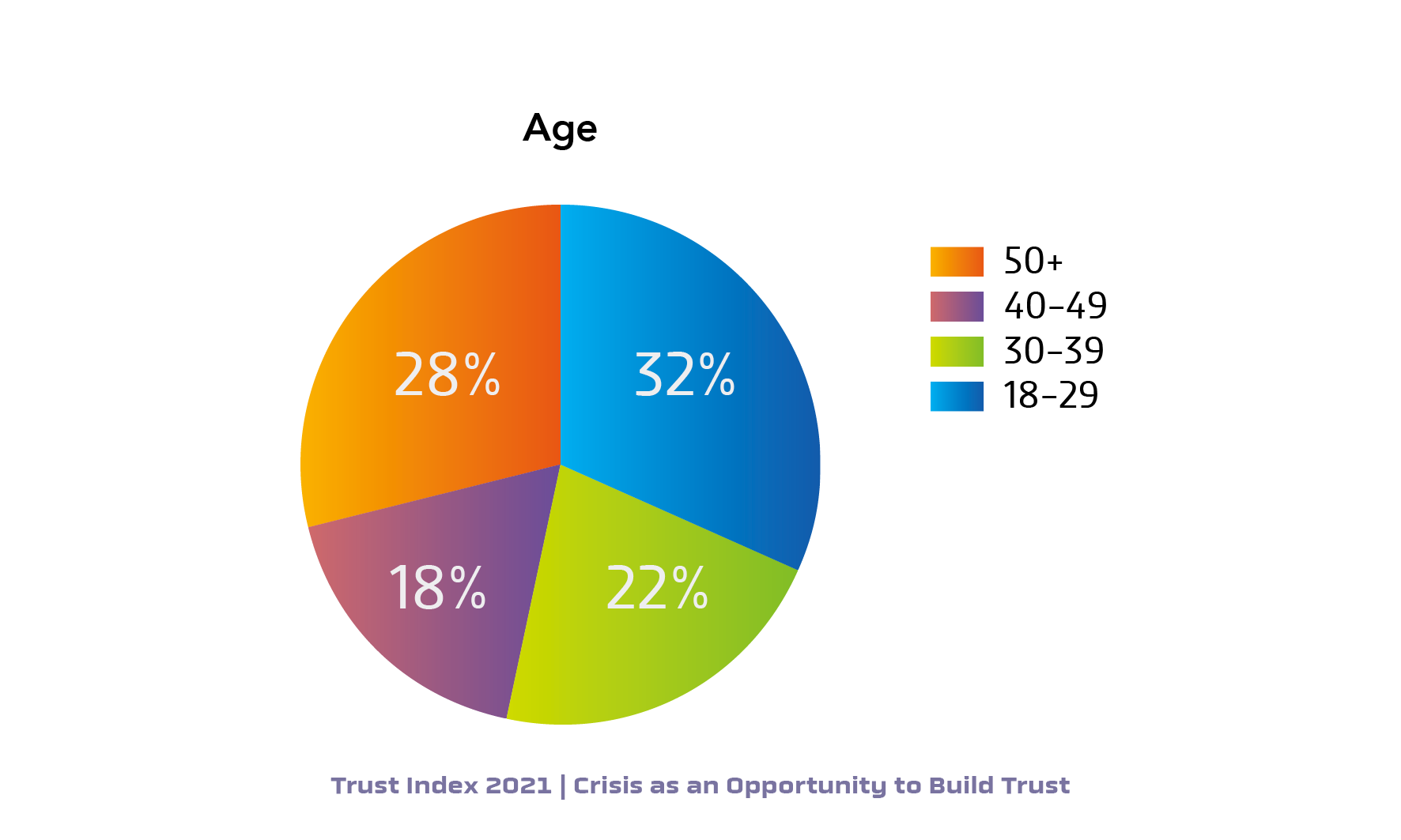
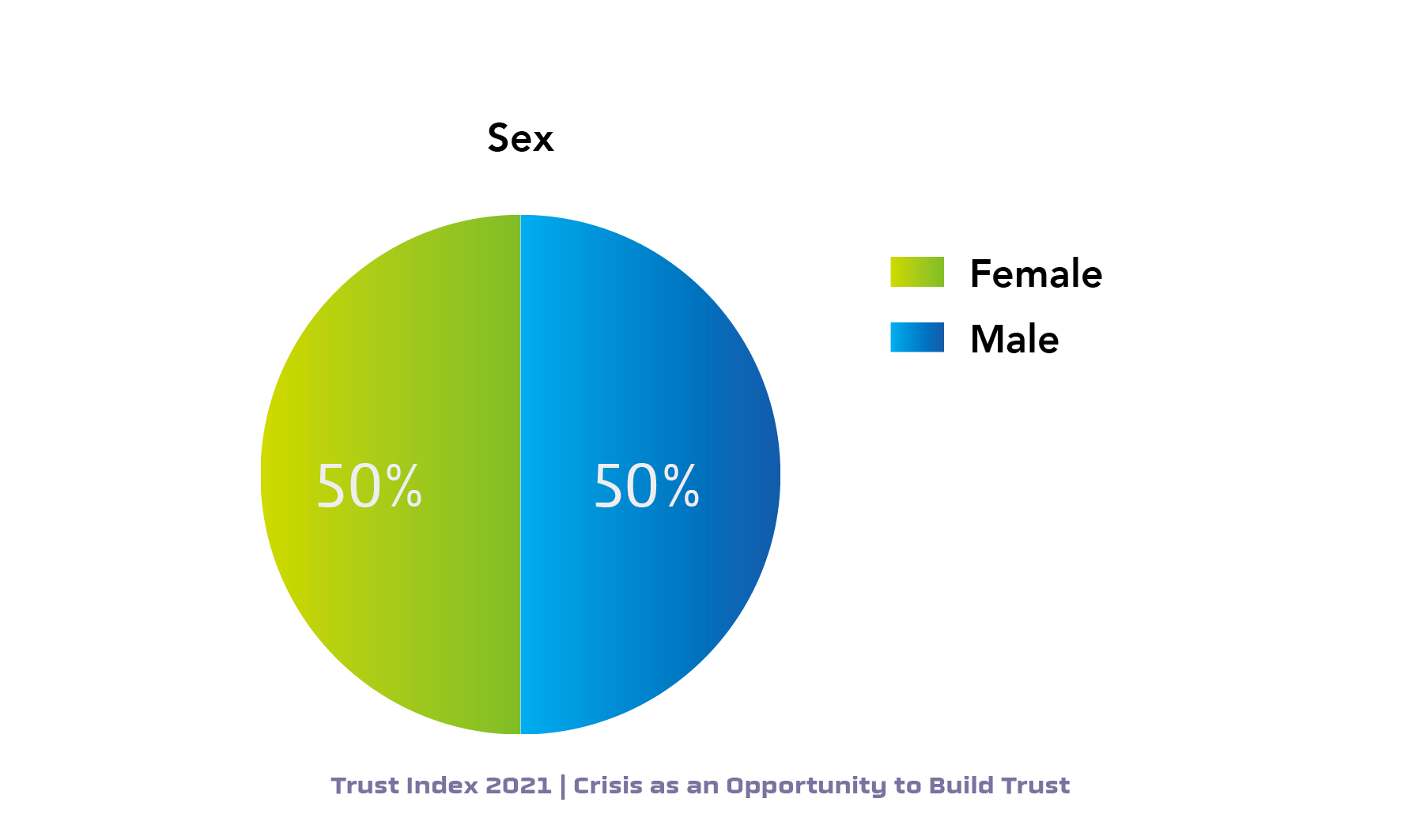
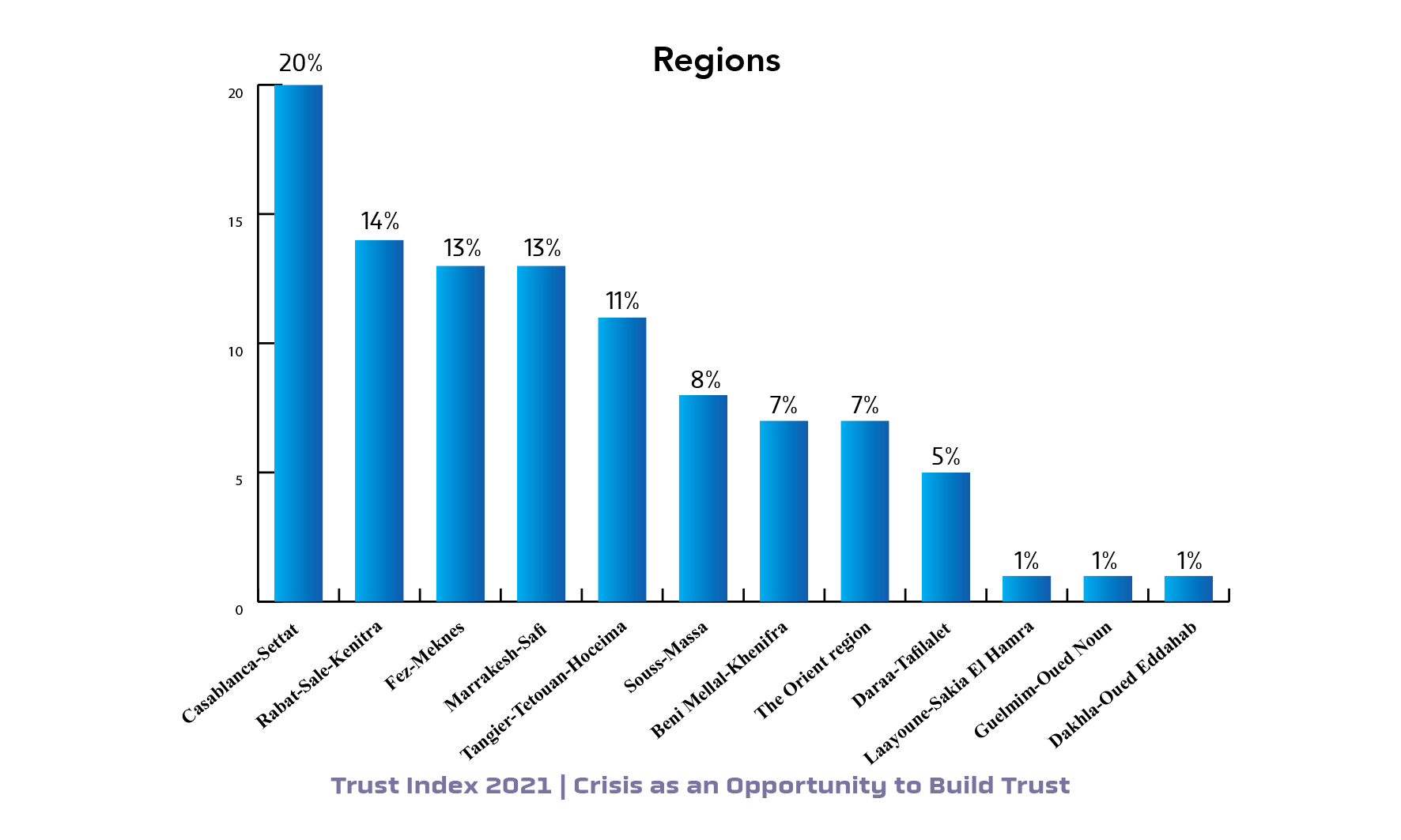
Preliminary findings
3-Social Trust
In general, 60% of the respondents believe that Moroccans trust each other (52% of them believe that Moroccans somewhat trust each other, whereas 8% said they trust each other to a large extent). Contrarily, 40% of the respondents also expressed that Moroccans do not trust each other (29% said they do not trust each other relatively and 11% said they do not trust each other at all). Moreover, 61% of the respondents said they somewhat trust others, while 11% said they trust others a lot. Conversely, 19% said that they do not trust others and 10% said that they do not trust others at all.
Moroccans seem to only trust the family; as 99% of the respondents said they trust their nuclear families, and 85% said they trust their extended families. However, 72% of the respondents do not trust people they meet for the first time, 67% of them do not trust people of other religions, 64% do not trust people of other nationalities, 45% do not trust their neighbors, and 37% do not trust their friends.
With regard to making friendships with strangers (people of other religions or sexual orientations, and refugees), 71% of the respondents do not mind having friends of a different religion, 74% accept having refugee friends, 29% accept friends who do not believe in God, and 19% accept having homosexual friends..
As for their Moroccan identity, 65% of the respondents said they are very proud of being Moroccans, 26% said they are somewhat proud of that, and 7% said they are somewhat not proud of being Moroccans.
Figure 1: Moroccans’ trust in each other
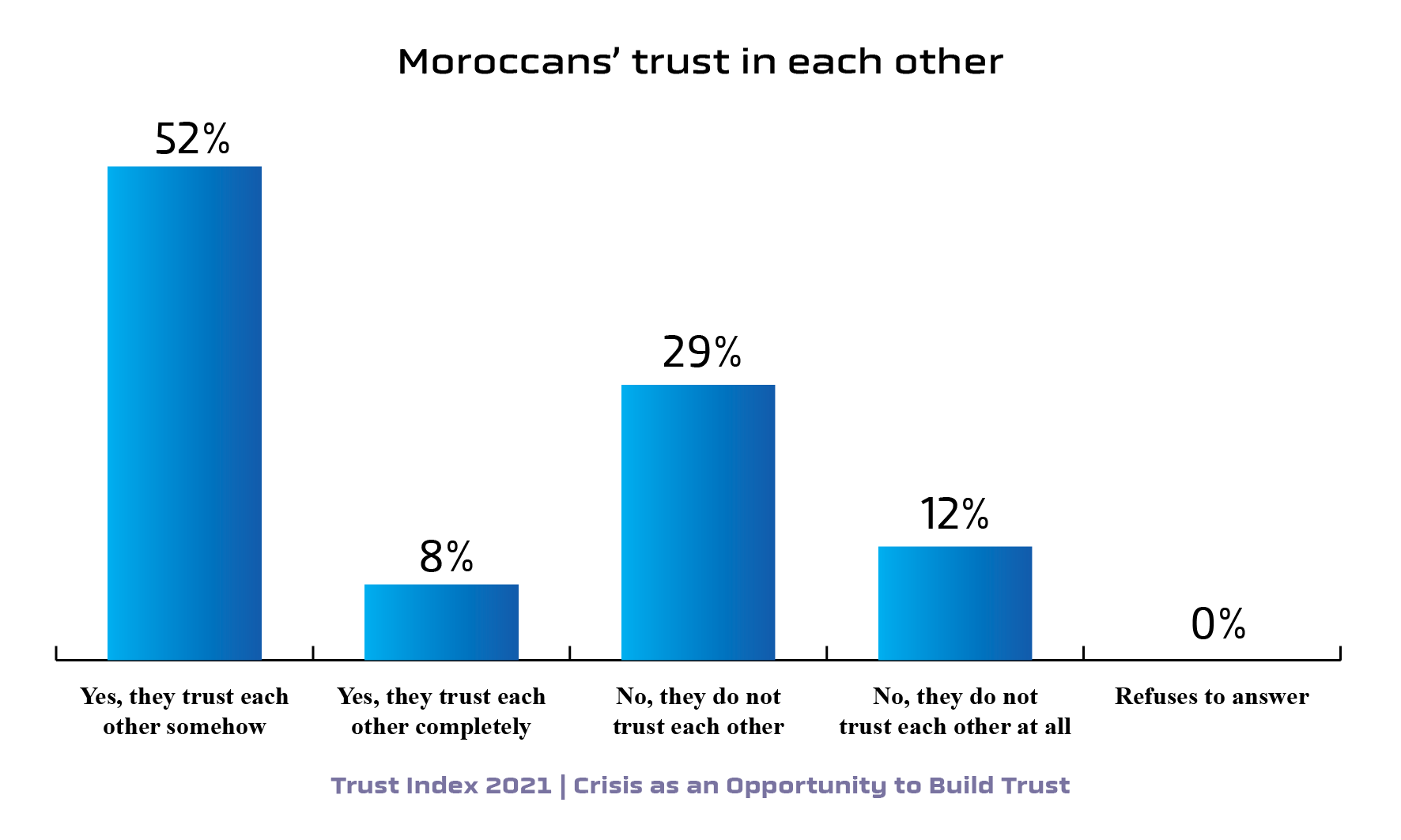
Figure 2: Trust in most people
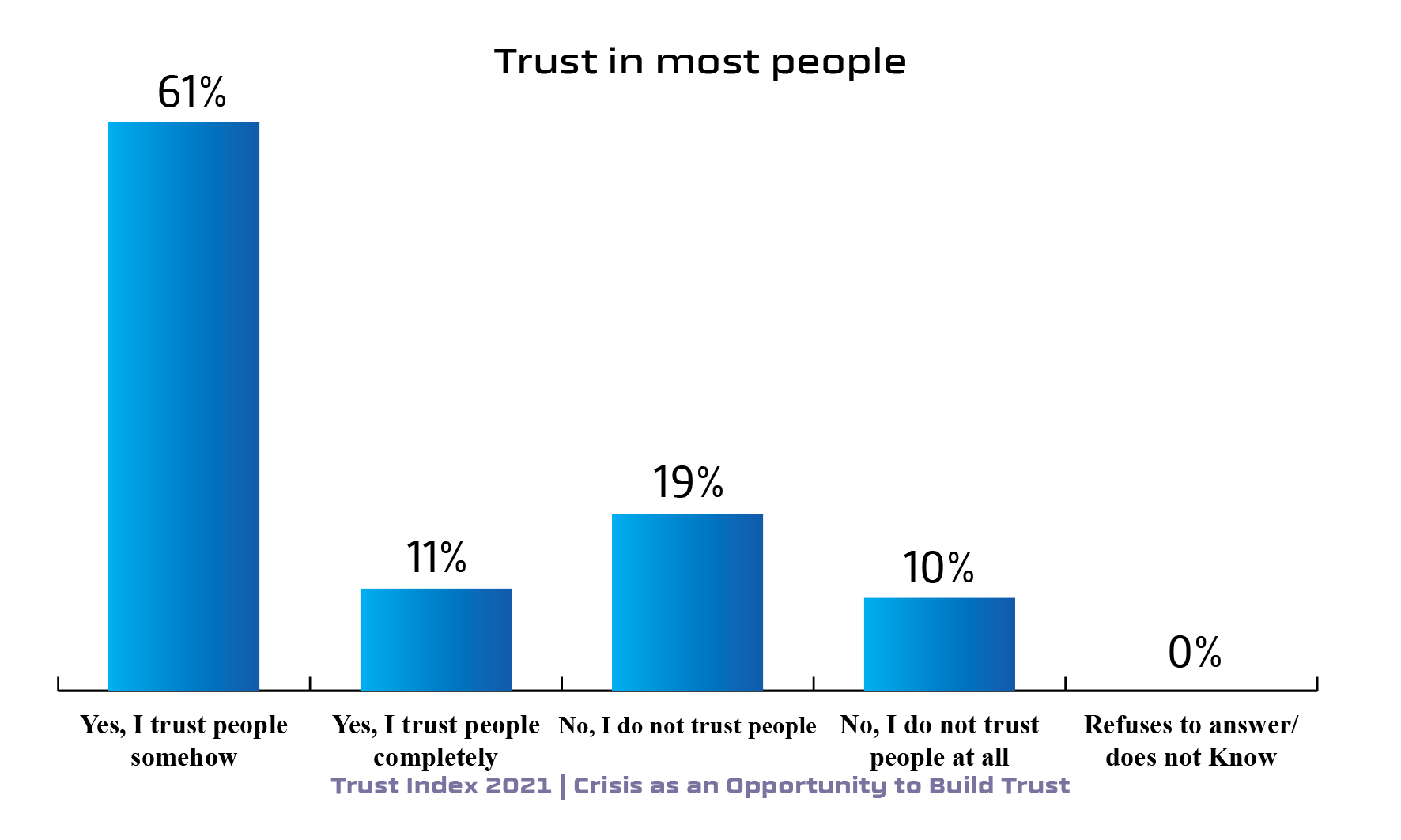
Figure 3: Social trust
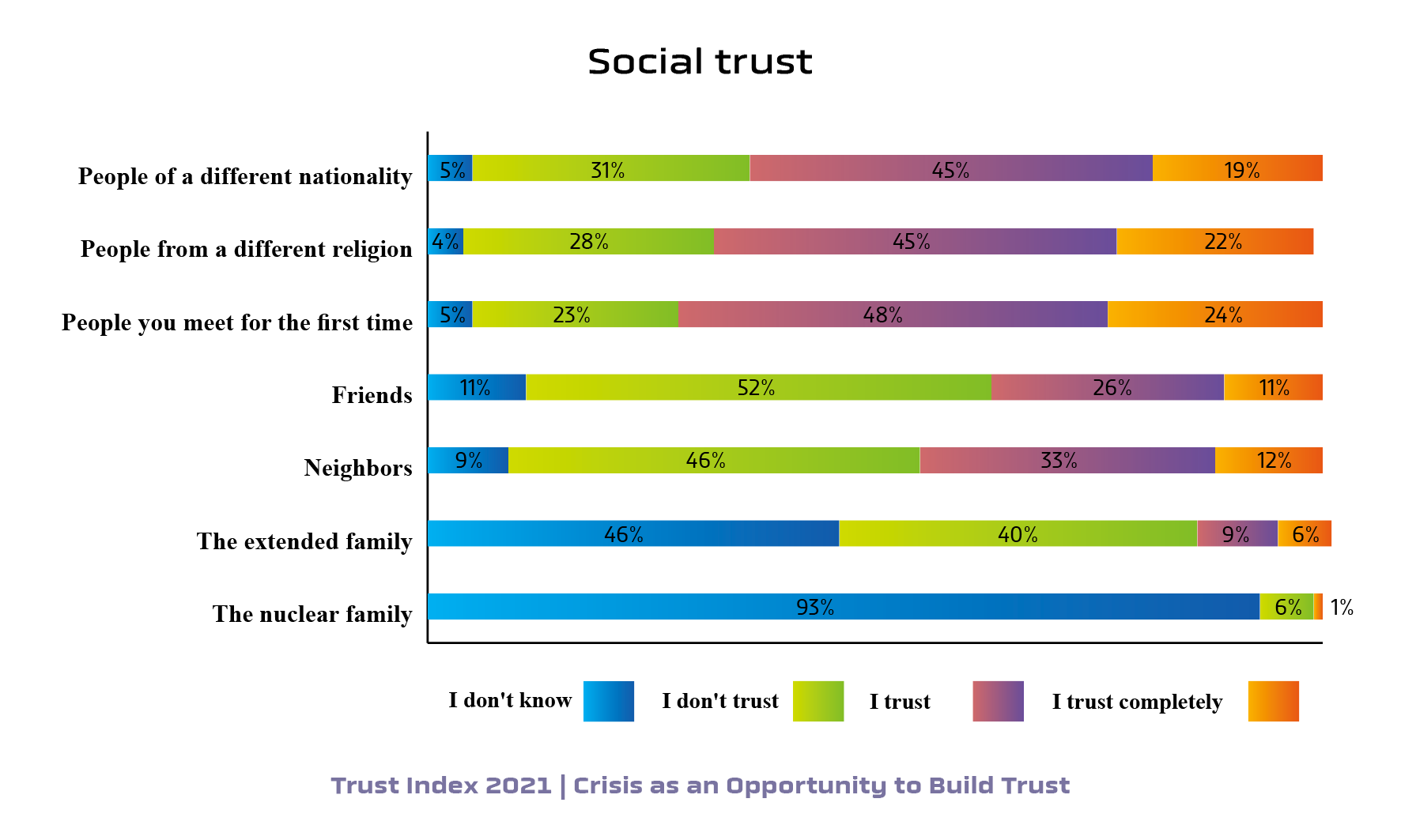
Figure 4: friendships
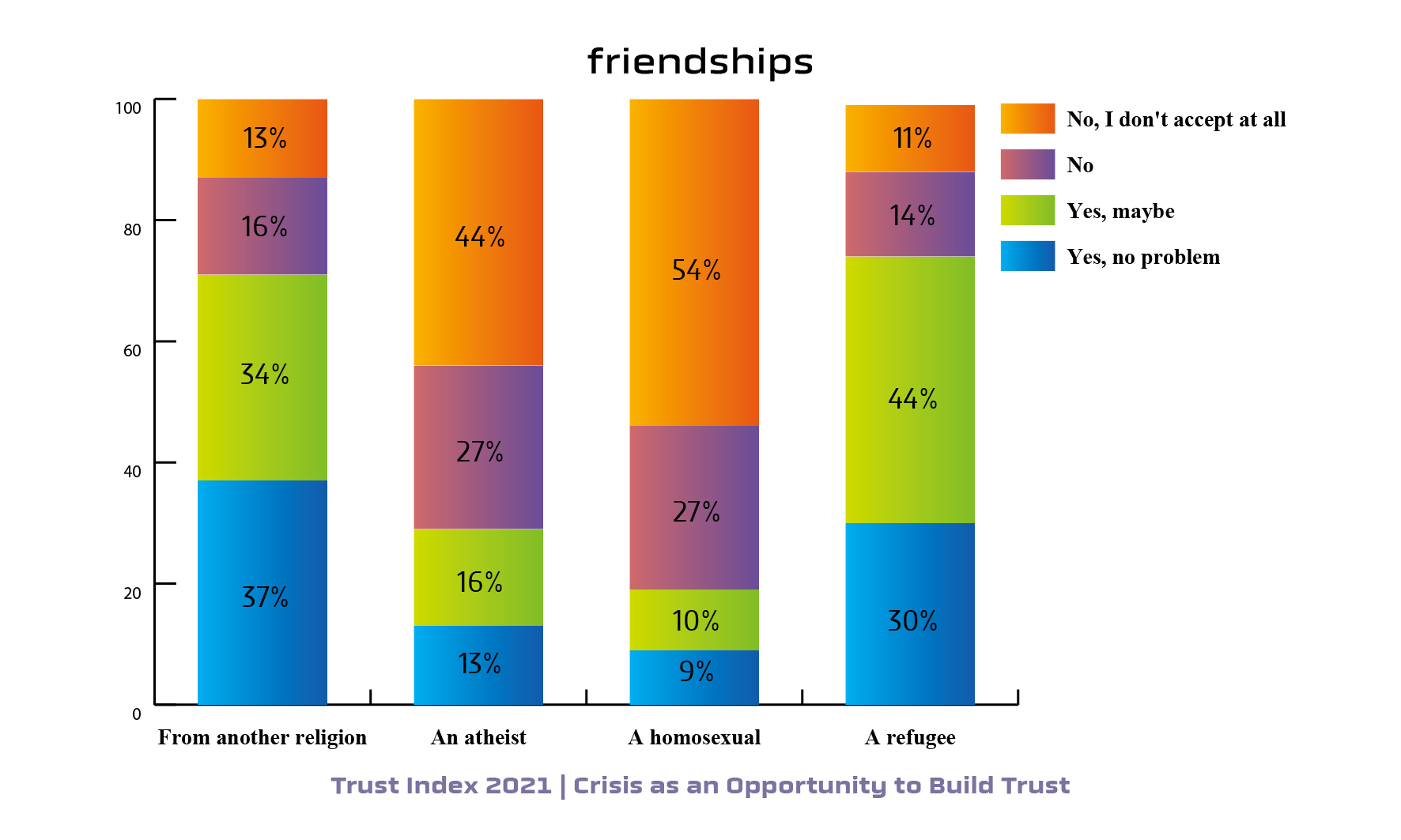
Figure 5: pride in the Moroccan identity
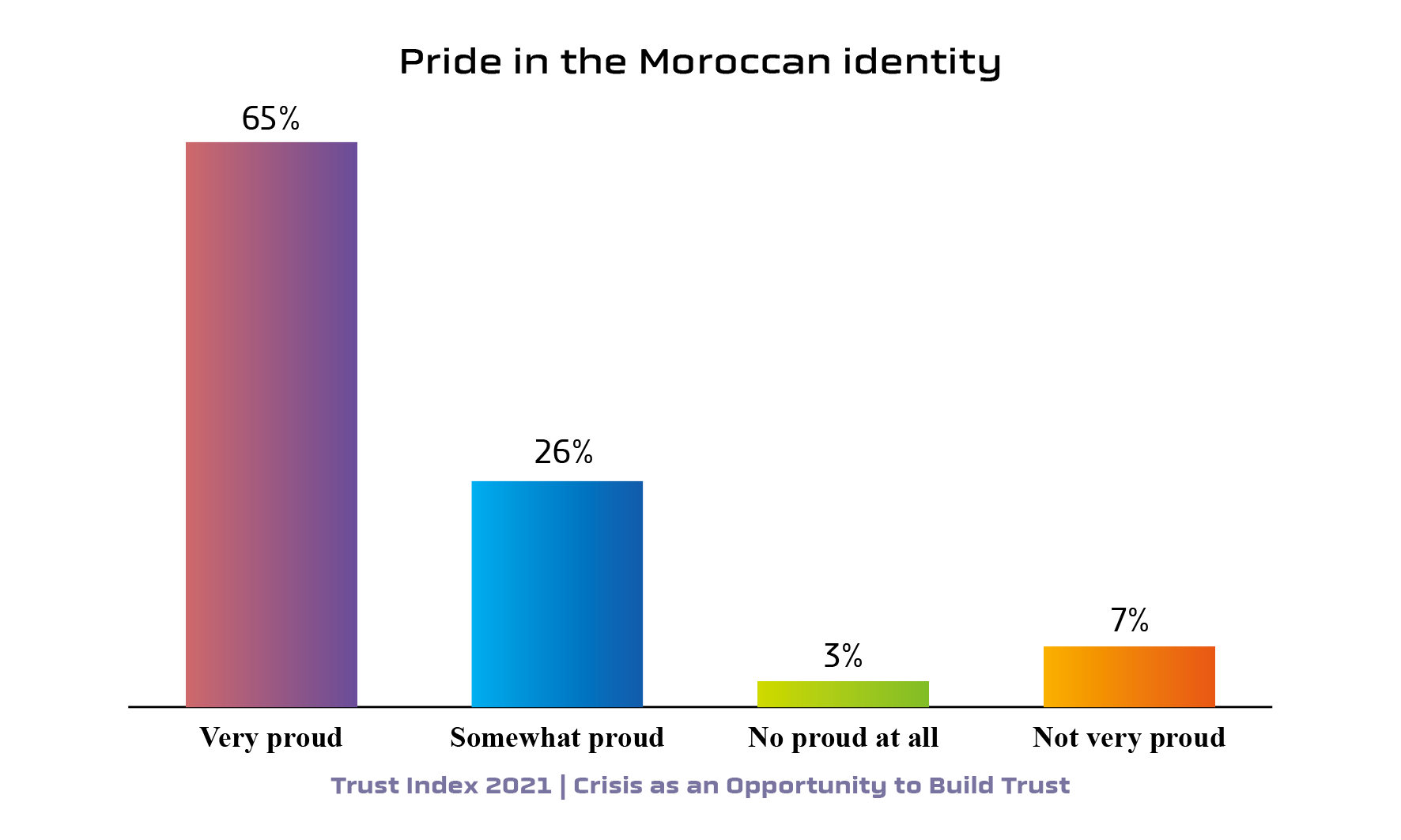
4- Political trust
Political trust is one of the focal areas of the Trust Index. The study relies on several indicators, including the interest and participation in the public sphere, partisan and civic affiliation, perceptions about corruption and freedom of expression, in addition to trust in institutions.
With regard to participation in the political and public sphere, citizens expressed limited interest in regard of the current political issues; around 36%said that they follow politics with interest (3% follow politics closely, 33% somewhat follow politics), and 46% said that they do not follow politics at all.
As for non-traditional methods of political participation, such as economic boycott, petitioning, or sharing political content on social media, 20% said they had previously participated in a protest, 12% participated in signing a petition, 39% said they participated in an economic boycott, 19% participated in an election boycott, and 11% said they had previously shared political content on social media.
The findings of the study show that there is little involvement in formal politics; as 98% of the respondents are not members of any political party, only 18% said they voted in the last elections, 32% confirmed that they are considering voting in the next elections (in 2021), while about two-thirds of the respondents (64%) do not consider voting in the next elections.
With regard to respect for human rights, 50% of the respondents said they are moderately respected in Morocco, while 31% said they are little respected, and 14% said they are not respected at all. On the other side, 5% said that there is great respect for human rights in Morocco.
Figure 6: Have you ever participated in one of the following activities?
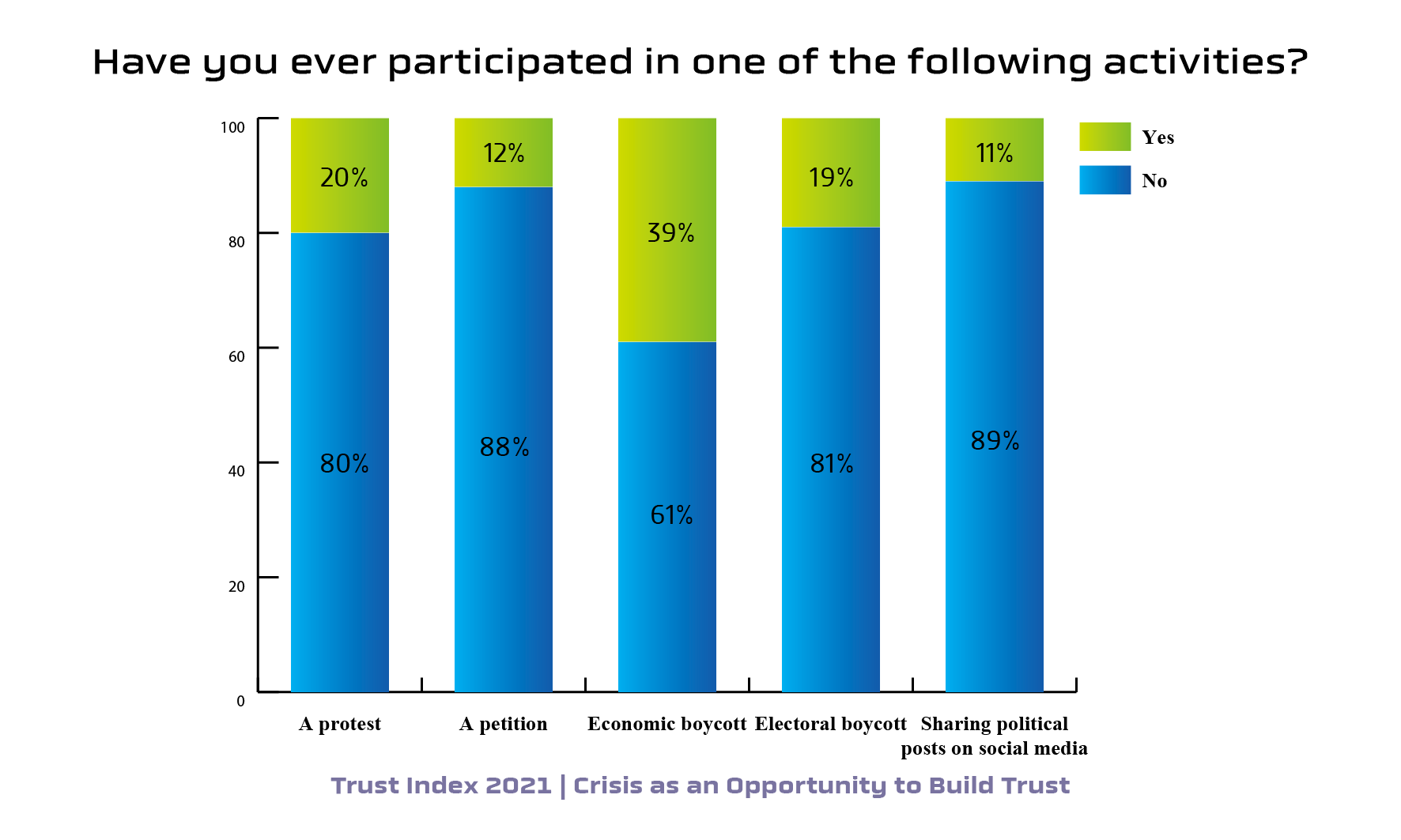
Figure 7: are you a member of a political party?
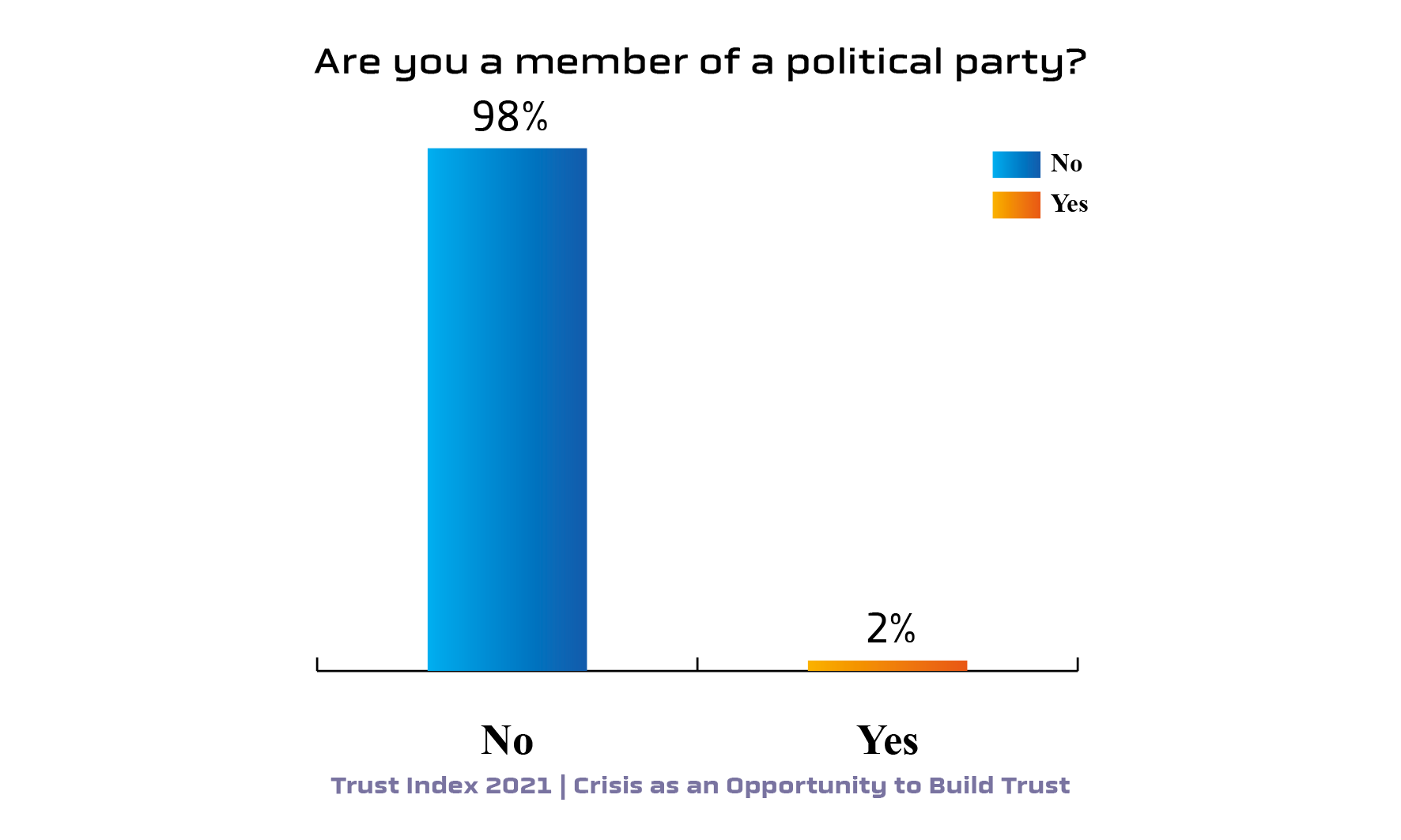
Figure 8: Did you participate in the last elections?
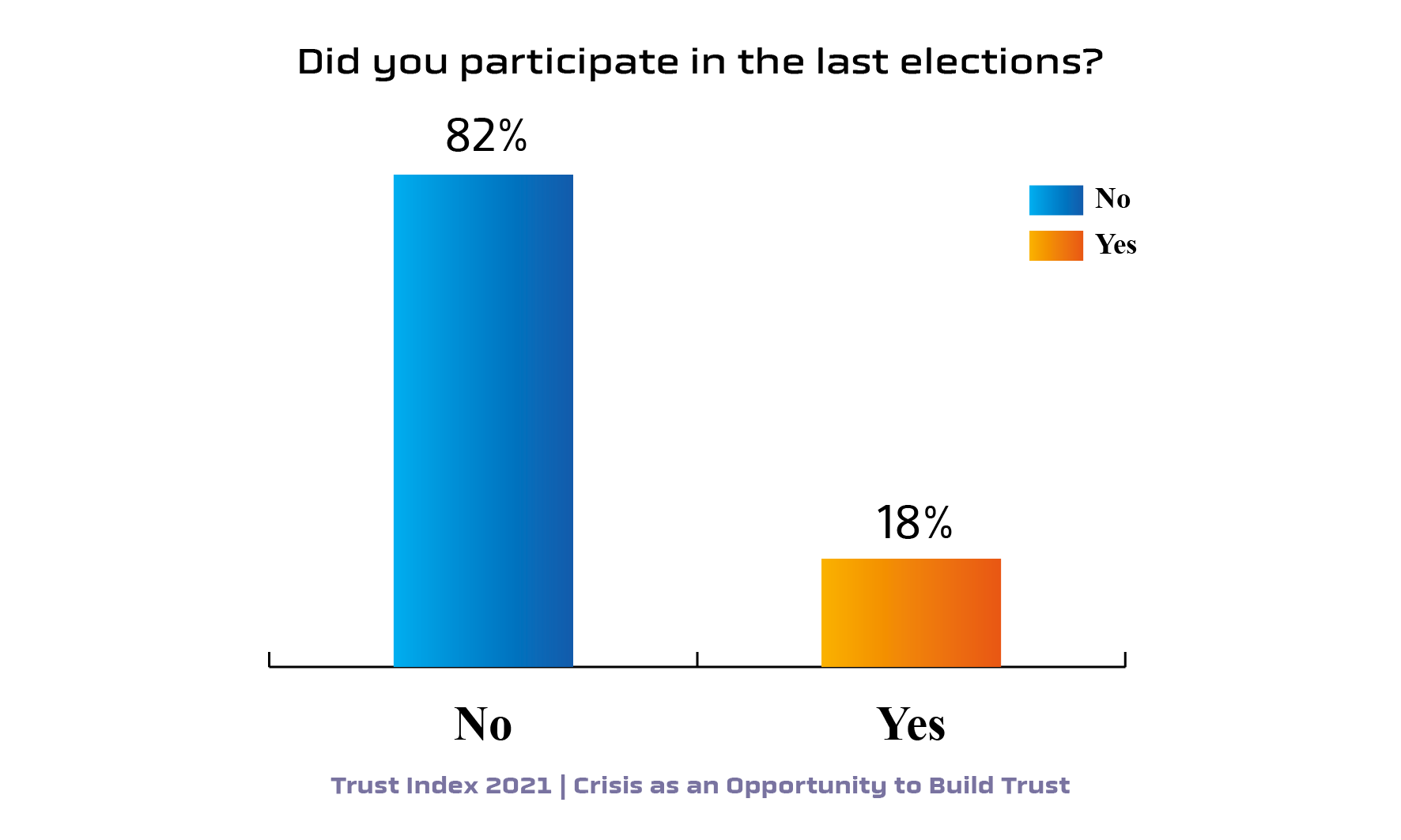
Figure 9: Are you considering voting in the next elections?
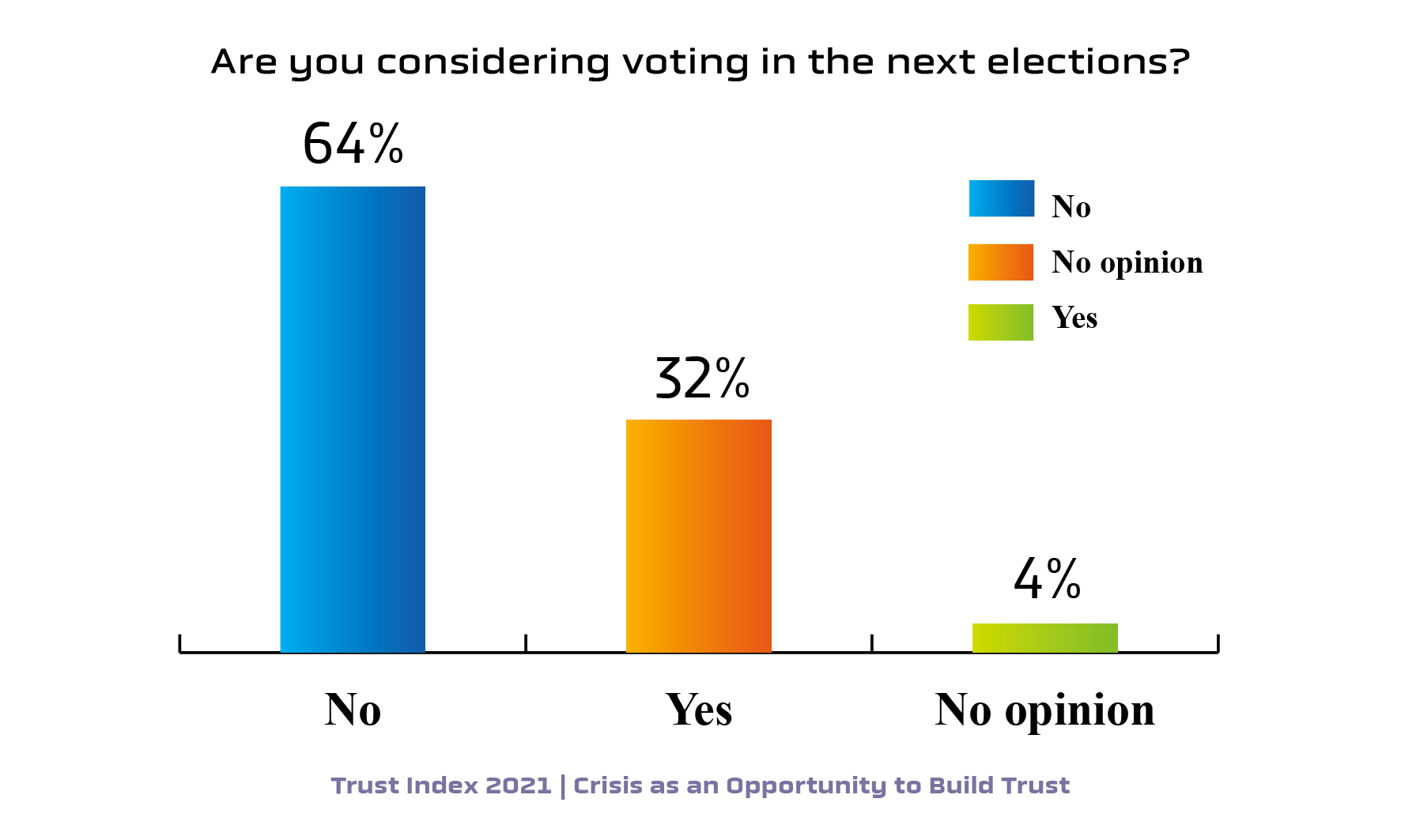
Figure 10: To what extent do you think there is respect for human rights in Morocco?
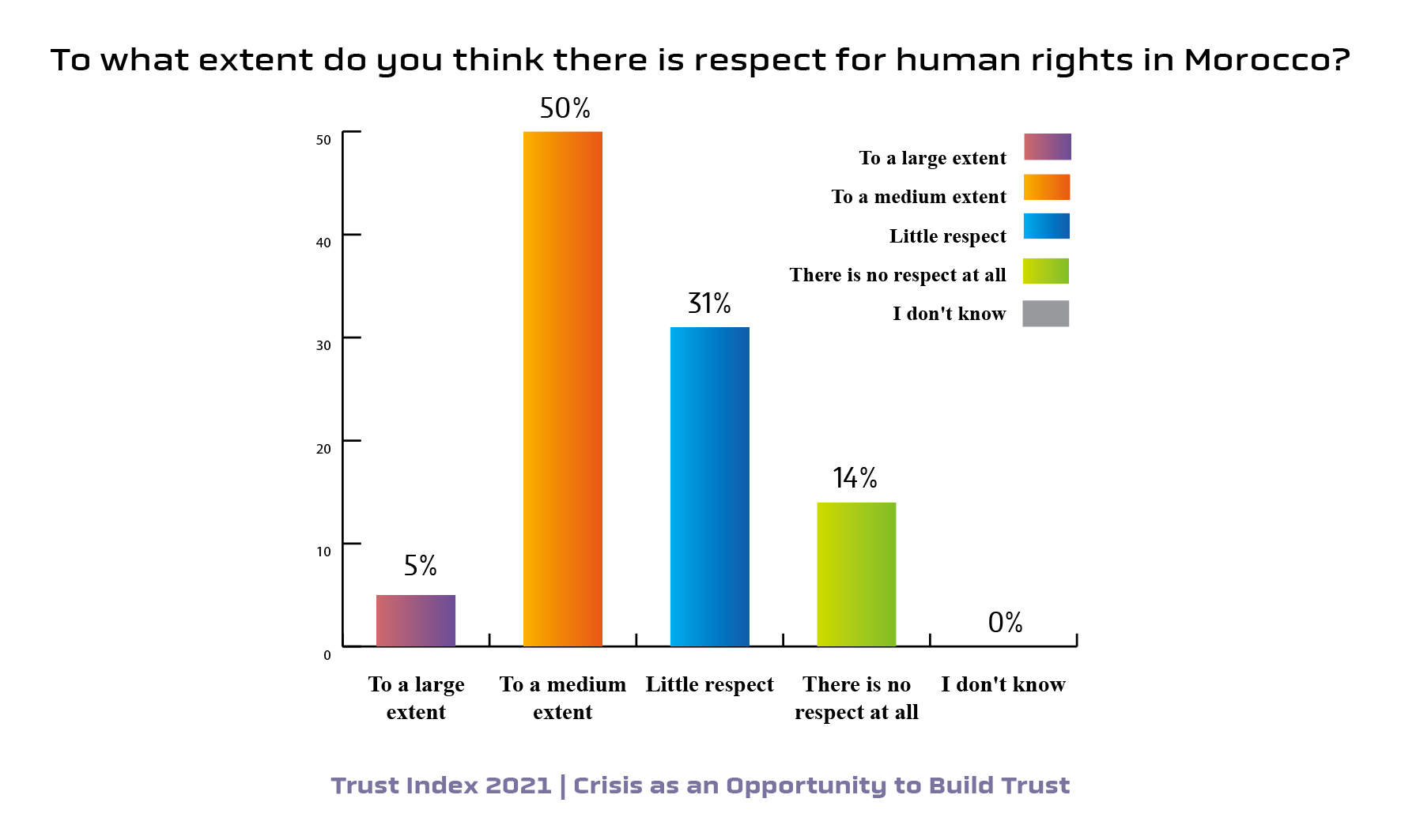
With regard to the priorities that the government should focus on in the next 10 years, health and education are the top two priorities. On top of preferences, 56 % of the respondents chose access to better health services, followed by education as the second priority for Moroccans, at a rate of 56%. This is consistent with the findings of the Trust Index 1 upon which the health and education sectors were chosen to form the focus of this year’s report.
Figure 11: The most important objectives that the Moroccan government should achieve in the next ten years? – first option
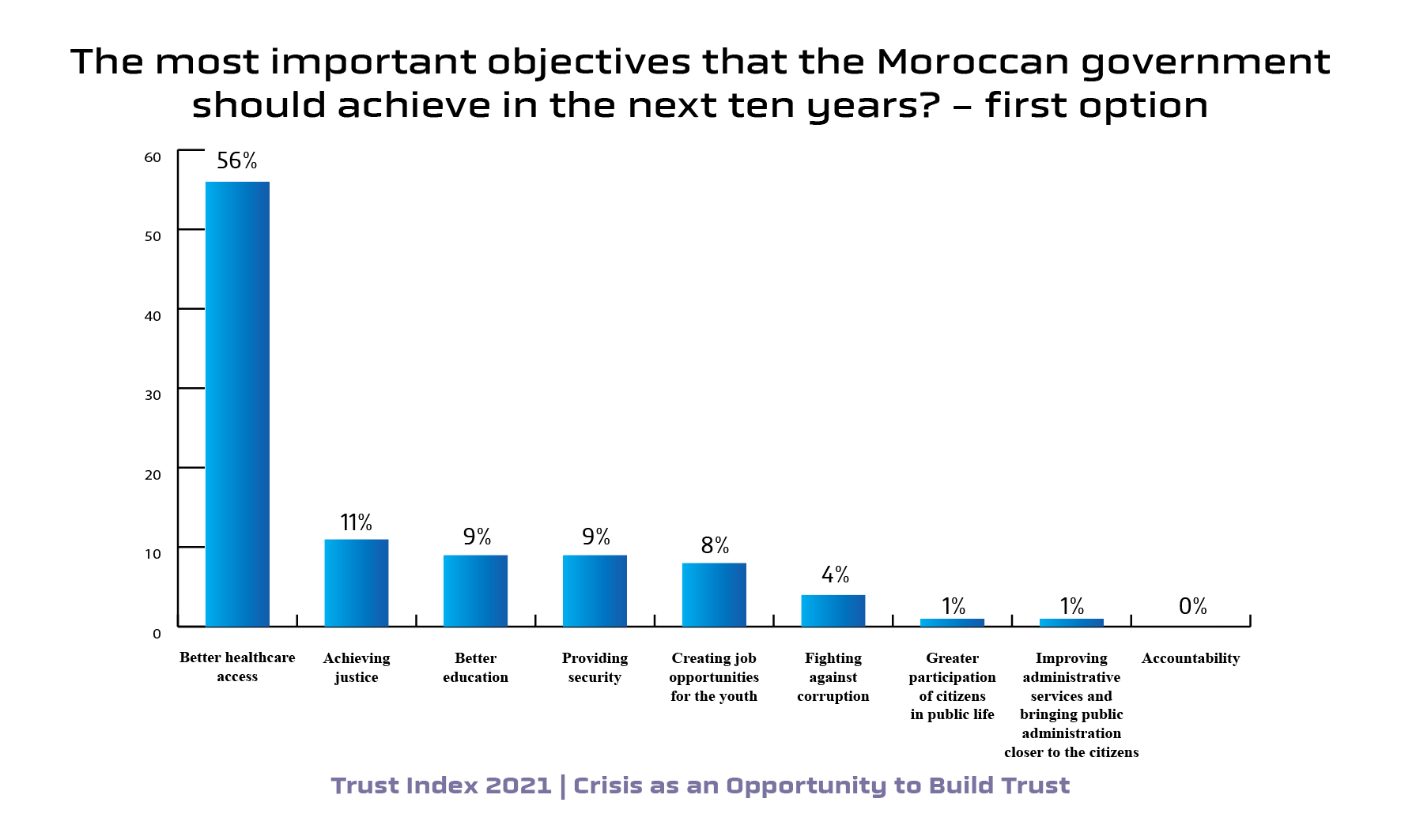
Figure12: The most important objectives that the Moroccan government should achieve in the next ten years? –second option
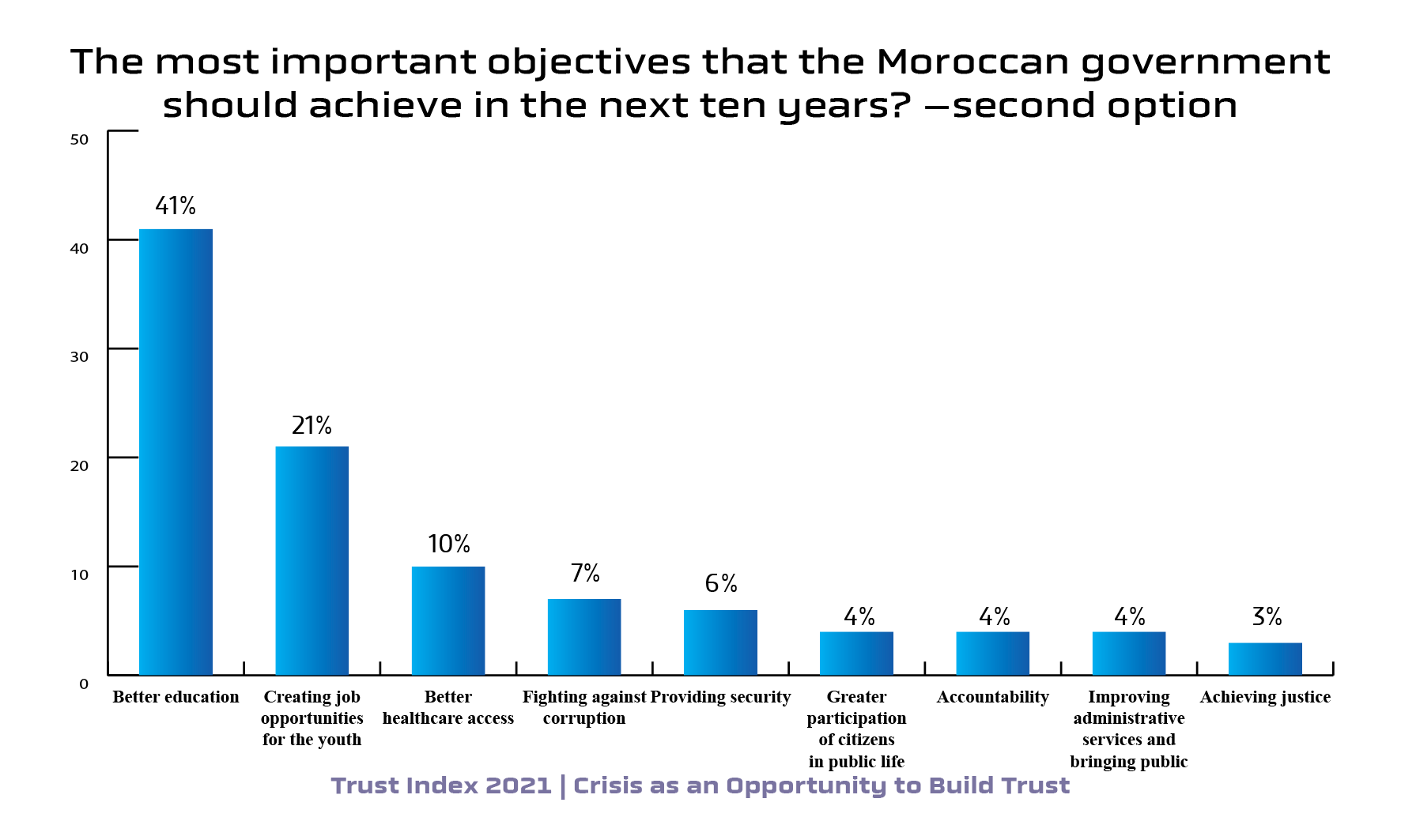
5- Trust in state institutions and in elected institutions
The findings of this study confirm the same conclusions that were reached in the Trust in Institutions Index 2020, notably the lack of trust in the elected institutions. In the case of political parties, about 74% of Moroccans said they do not trust political parties (with 38% not trusting them at all), while last year it was around 69%. Plus, 70% do not trust the parliament (with 33% not trusting it at all). However, the most important observation this year is the increase in trust in the government, with 50% saying they trust the current government, compared to 23% last year. This increase in citizens’ trust in the government is mostly attributed to the rapid and effective measures taken by the state to manage the coronavirus pandemic. However, the authors of this report will return to this point in length in the full version of the report.
Unlike political institutions that Moroccans distrust, unelected sovereign institutions enjoy much higher levels of trust. For Moroccans, the police and the army are the most trusted institutions. The level of trust in the police is 86% (compared to 78% last year), and 89% for the armed forces (compared to 83.3% last year). Yet, trust is also high in the judiciary albeit relatively low compared to the police and army, reaching about 61% (despite a substantial increase since last year, when only 41% reported trust in the judiciary).
Figure 13: Trust in institutions

6- Trust in the health and education sectors
The report devotes two sections to the education and health sectors. The main observation is that there is no significant difference between the private and public education sectors. However, the private health sector is more trusted by citizens than the public sector. Regarding the education sector, the percentages of citizens who are satisfied with the quality of public and private education were equal; 65% of the respondents are satisfied with the quality of public education in Morocco, and 64% are satisfied with the quality of private education. Plus, 12% said they are very satisfied with the quality of public education, whereas 19% said they are very satisfied with the quality of private education.
As for trust in the education sector, it is about 66% in public education (compared to 48% last year), and 70% in private education (compared to 83.2% last year). Besides, 8% said they do not trust the public school at all, whereas 5% said they do not trust the private school at all.
The satisfaction with the health sector services is very low compared to that of the education sector. 41% expressed their satisfaction with the public health sector (38% are satisfied and 3% are very satisfied), while 59% expressed their dissatisfaction (28% are not satisfied at all and 31% are not satisfied). There is a discrepancy between the public and private sectors in this area, as the degree of satisfaction with the services of the private sector, is about 71% (17% are very satisfied and 54% are satisfied).
Figure 14: In general, are you satisfied with the quality of education in Morocco?
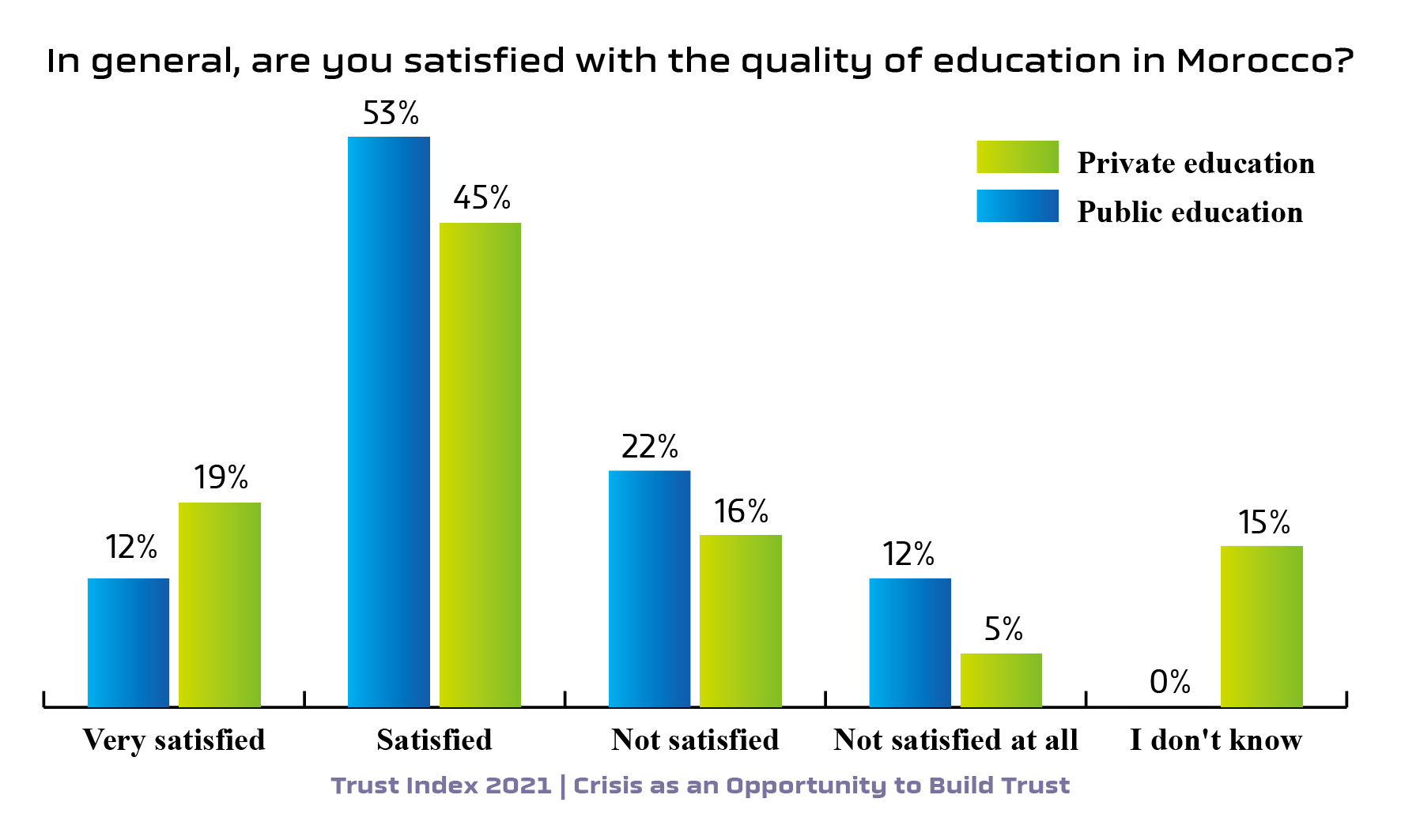
Figure 15: In general, are you satisfied with the quality of healthcare in Morocco?
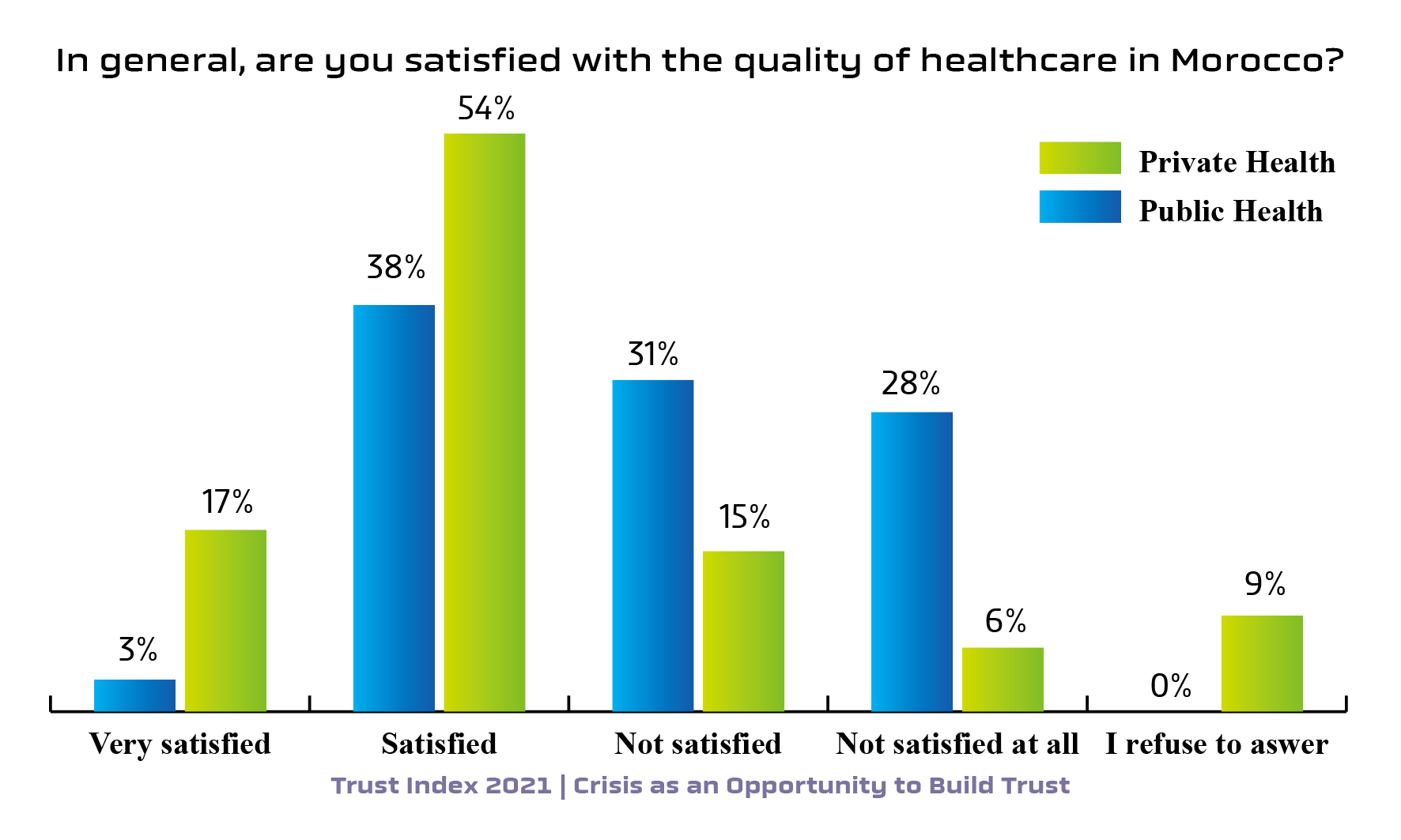
7- Fighting corruption
In regard of fighting corruption, only 35% of the respondents expressed their satisfaction with the government’s efforts to fight corruption (3% are very satisfied, and 31% are satisfied). Half of the respondents (52%) believe that the government is trying to fight corruption, but can actually do more than it is currently doing, whereas 9% said it is making enough efforts to fight corruption, and 39% have the opposing view.
This is reflected in citizens’ perceptions of bribery and patronage in the education and health sectors, with the healthcare sector being the largest in terms of perceptions of corruption. As 87% of respondents said that bribery is prevalent in the public health sector (58% said it is very prevalent, and 29% said it is prevalent), and 55% believe that bribery and patronage are prevalent in the private health sector (19% said they are very prevalent, and 36% said they are prevalent). The education sector also has high levels of corruption perceptions, albeit less than the health sector; as 48% of respondents believe that bribery and patronage are prevalent in the public education sector (20% think they are very prevalent and 28% believe they are prevalent). Furthermore, 45% of respondents believe that bribery and patronage are prevalent in the private education (17% said they are very prevalent and 28% said they are prevalent).
Figure 16: Satisfaction with the government’s efforts in fighting corruption
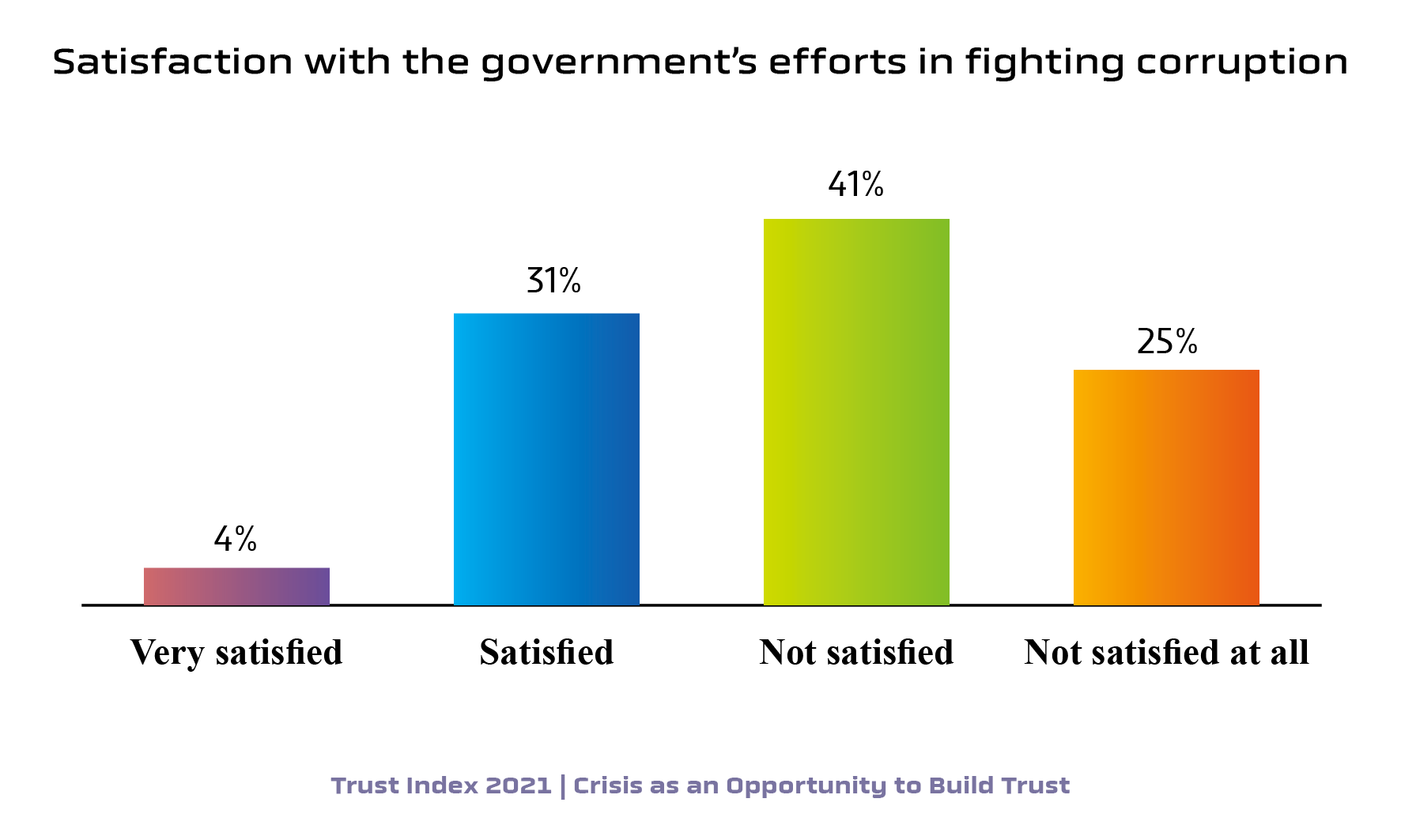
Figure 17: Do you think the government is doing enough to fight corruption?
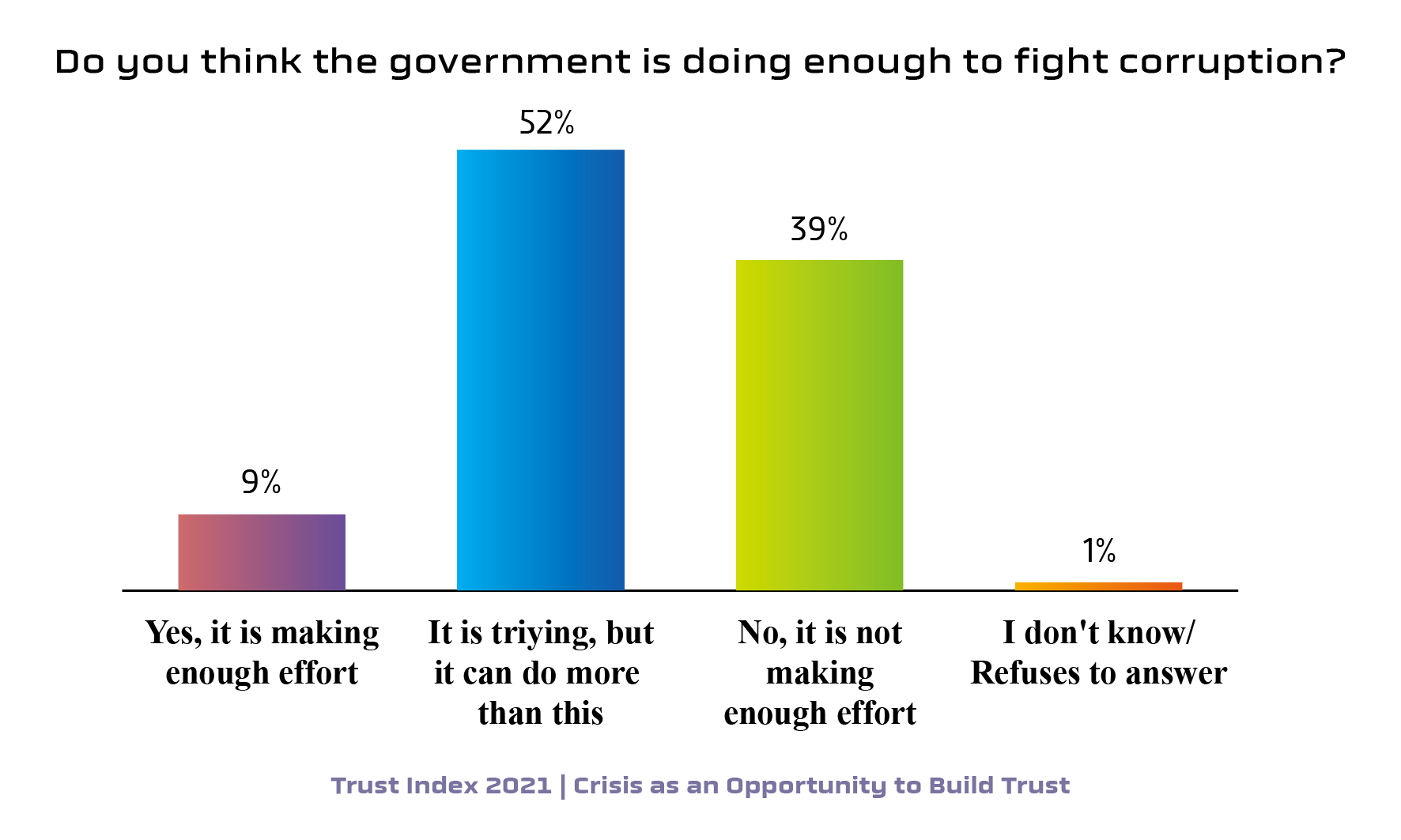
Figure 18: Do you think that corruption (bribery and patronage) is prevalent in the following sectors?
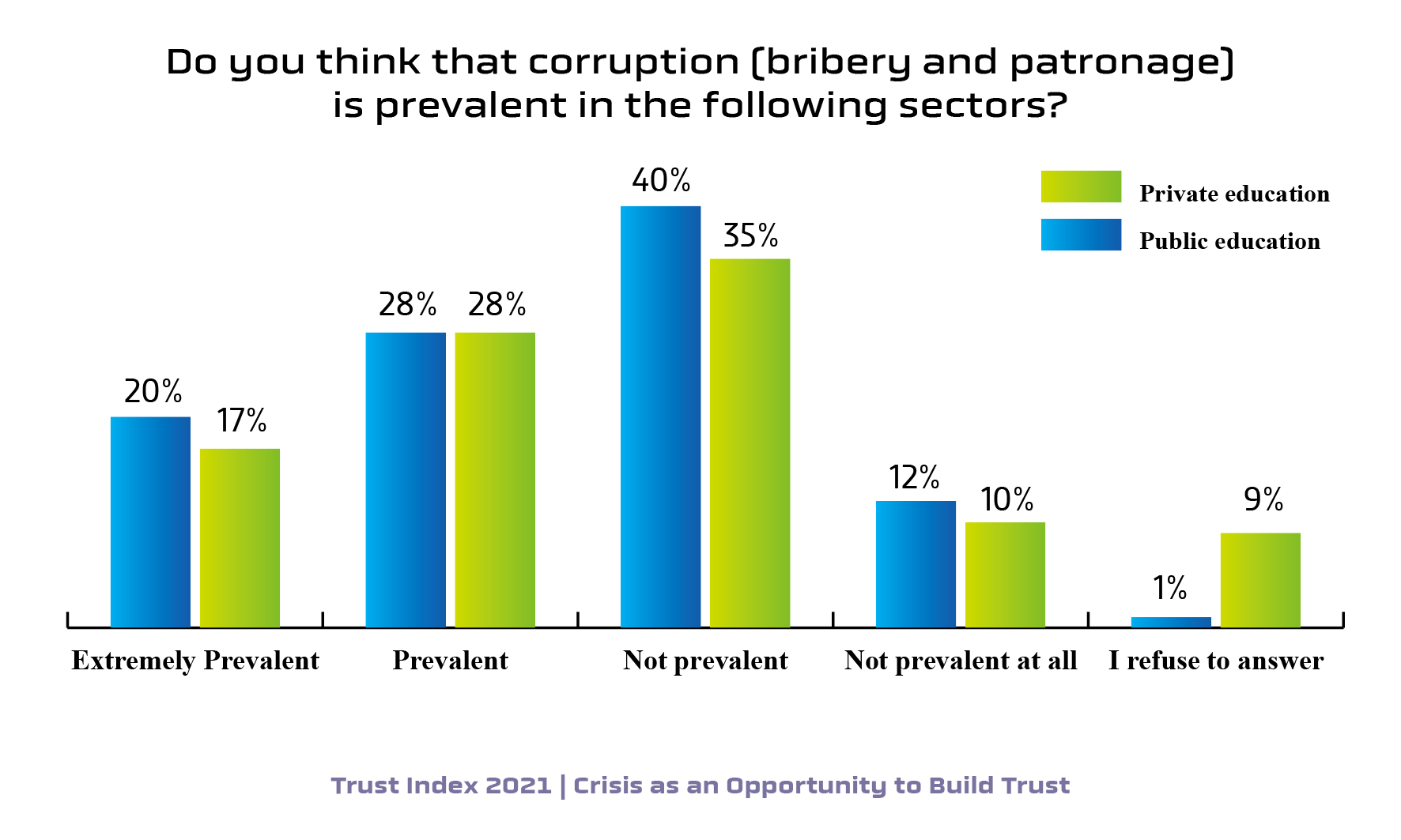
Figure 19: Do you think that corruption (bribery and patronage) is prevalent in the following sectors?
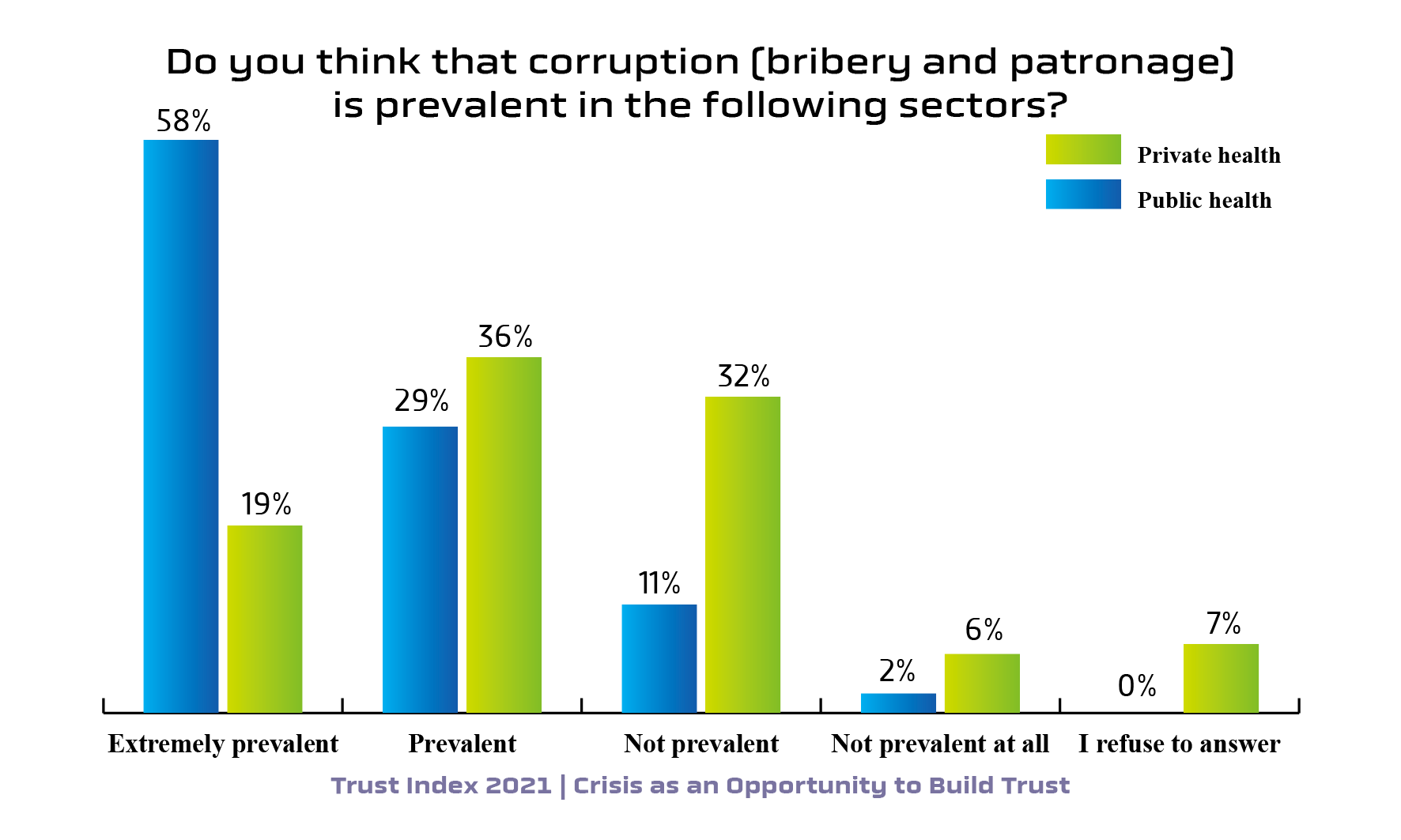
8- The future?
The participants in this research expressed their continued dissatisfaction with Morocco’s general direction, as 70% of them expressed their concern about the country’s general trend, compared to 69% last year, which is a slight increase. This once again reveals a high degree of suspicion and concern among Moroccans regarding the future. Actually, 65% of the participants expressed their dissatisfaction with the economic situation compared to about half of the sample last year. Moreover, about 66% of Moroccans believe that the government’s efforts in combating corruption are ineffective, compared to 74% in last year’s index. As for the government’s efforts to counter the impact of Coronavirus, the participants were divided into two roughly equal parts; the first one expressed its satisfaction with the government’s efforts, while the other one expressed its dissatisfaction with the efforts made in this regard. Plus, 18% said that they are not satisfied at all with these efforts.
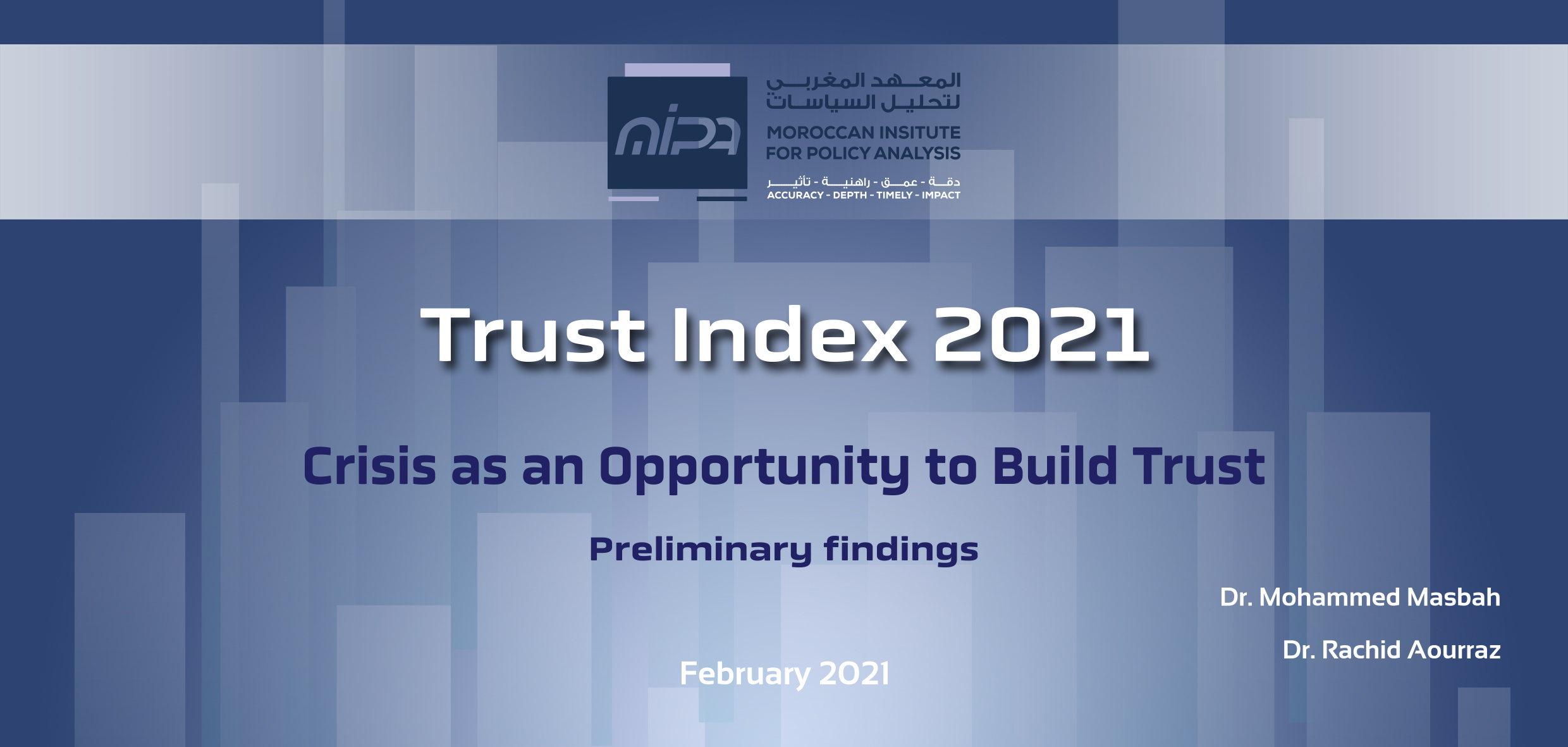
About the authors
Dr. Mohammed Masbah, Founder and President of the Moroccan Institute for Policy Analysis and associate fellow of the Middle East and North Africa Program at Chatham House. He worked previously as a non-resident researcher at the Carnegie Endowment for International Peace and a fellow at the German Institute for International and Security Affairs. He is a researcher in politics and sociology whose work focuses on authoritarianism, youth movements, and political Islam, with emphasis on North Africa. Dr. Masbah holds a PhD in Sociology from the University of Mohamed V in Rabat.
Dr. Rachid Aourraz, a senior researcher at the Moroccan Institute for Policy Analysis, and an economic researcher specializing in the impact of education, economic, political and social institutions on economic dynamism. He conducted studies and wrote articles for a number of local and Arab newspapers, and contributed to discussions on Moroccan and Arab channels, as well as contributed to translating a number of publications in recent years. Dr. Rachid Aourraz holds a PhD in Applied Economics from Ibn Zohr University in Agadir.[/vc_column_text][/vc_column][/vc_row]
MIPA Institute
MIPA is a non-profit independent research institution based in Rabat, Morocco. Founded by a group of transdisciplinary researchers, MIPA’s mission is to produce systematic and in-depth analysis of relevant policy issues that lead to new and innovative ideas for solving some of the most pressing issues relating to democracy.
